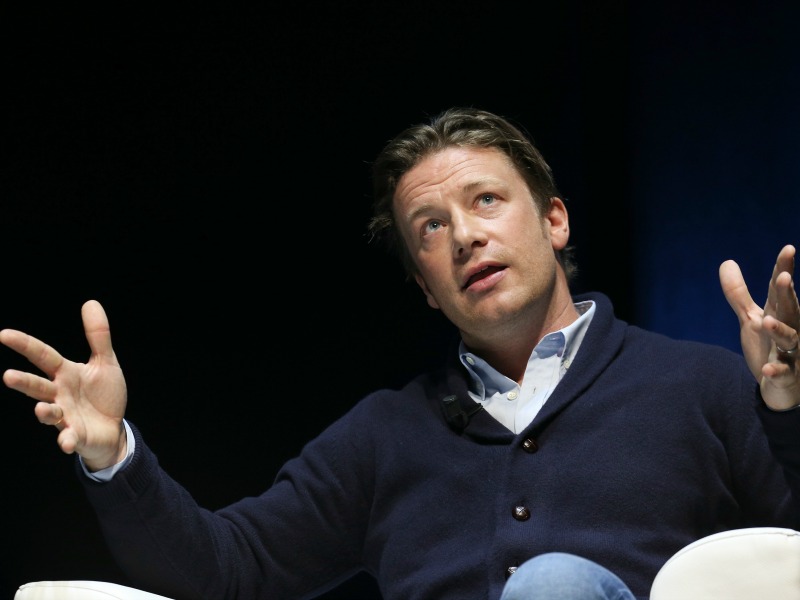Paul Holmes 23 Jun 2015 // 11:09AM GMT

CANNES—"Trust is the currency that is in short supply," celebrity chef and food activist Jamie Oliver told an audience at Cannes, talking about the 17-year mission to build his own brand—at a time when celebrities are less credible and consumer are turning to peers for trusted advice. His advice to the marketers in the room: “Be clear and be honest.”
“I try to be their friend,” he said of the people who watch his shows, visit his website, or engage with him on social media. “You do that by being consistent, by responding to comments, by connecting personally with people.”
Oliver was talking at a session on the promise and perils of innovation, “When New Just Isn’t Enough,” sponsored by Edelman. The conversation was driven in part by new research released by Edelman earlier in the day, which found significant concern about the pace of innovation and the problems of eroding privacy and environmental harm.
“There’s never been a better time for innovation,” Edelman chief executive Richard Edelman told the audience. “But it’s not as simple as you might think. There is great concern about the pace of innovation; two-thirds of people believe it is more about profit than about making their lives better.” There are concerns that innovation is infringing on people’s privacy, and there are concerns that a constant flow of new products—and the disposability of old products—is bad for the environment.”
The assumption that innovation alone is enough is dangerous for marketers. They need to earn trust and permission to innovate.
“Marketers are doing it backwards,” said Edelman. “Innovation cannot be bought it has to be earned. Sixty percent of people think marketing isn’t listening. They feel products are being pushed to obsolescence. They want to be reassured first, and then inspired: It’s the opposite of what we are doing at the moment.”
And because people are turning to their peers for reassurance, “we have to enable the peer conversation. That’s the number one job for marketers.”
Oliver came to the discussion as a “brand” that has earned the public’s trust—both for his products and services and for his issue: healthier eating.
“It’s taken 10 years for me to get my head around referring to myself as a brand,” said Oliver, who discussed growing up living above a pub—“pubs are the most democratic place on earth”—which fostered a love of community. What he does has not changed since his first British TV show, The Naked Chef. “The message hasn’t changed. There’s a great value to consistency.”
But he has changed his message and way it is delivered in response to community. “In early days we never got feedback,” he said. “The power of digital is that every day it’s a conversation.”
Talking about his own record of innovation, he admitted to a significant failure rate.
“Some people think I am a businessman and massively strategic, but I realized I have fucked up about 40 percent of the time. That’s quite painful. But the mistakes taught me really powerful lessons. I am trying to turn those mistakes into R&D. What is the percentage that is healthy for innovation, is 40 percent reckless?”
The answer: not if you have built a relationship of trust with your audience, which gives you greater permission to experiment and fail.
In an era when every brand is being told it should become a media company, Oliver has achieved that and finds it liberating.
“The power is changing,” he said. “In the past everything we made was commissioned by traditional media but the future is about you guys becoming producers, developing really good quality content.” There is a disconnect between what public wants—information that can help them make healthier choices—and what traditional broadcasters want. By controlling the content himself, he has been better able to deliver what his audience really wants.
Along those lines, his latest R&D project is Food Tube: “It’s a giant experiment in connecting with brands to help them create really good, quality content.”
While he does not take money from junk food, and remains critical of the “sugary sweetened drinks industry” and dismissive of the argument that all such companies do is provide more choice.
One problem, he suggested, is that the average tenure of a CMO is 23 months, while the campaign he has launched—to educate people about food—is a 20-year mission. That requires a more long term view.
His advice: “It’s okay to sell chocolate. It’s okay to sell any product and still contribute. Be careful about how you market to kids, because we are watching. Be aware that expectations are changing.” But at the end of the day, the secret to successful, credible communications is simple. “Be clear and be honest.”


































.jpg)


.jpg)

















